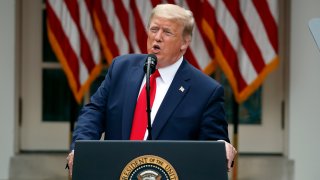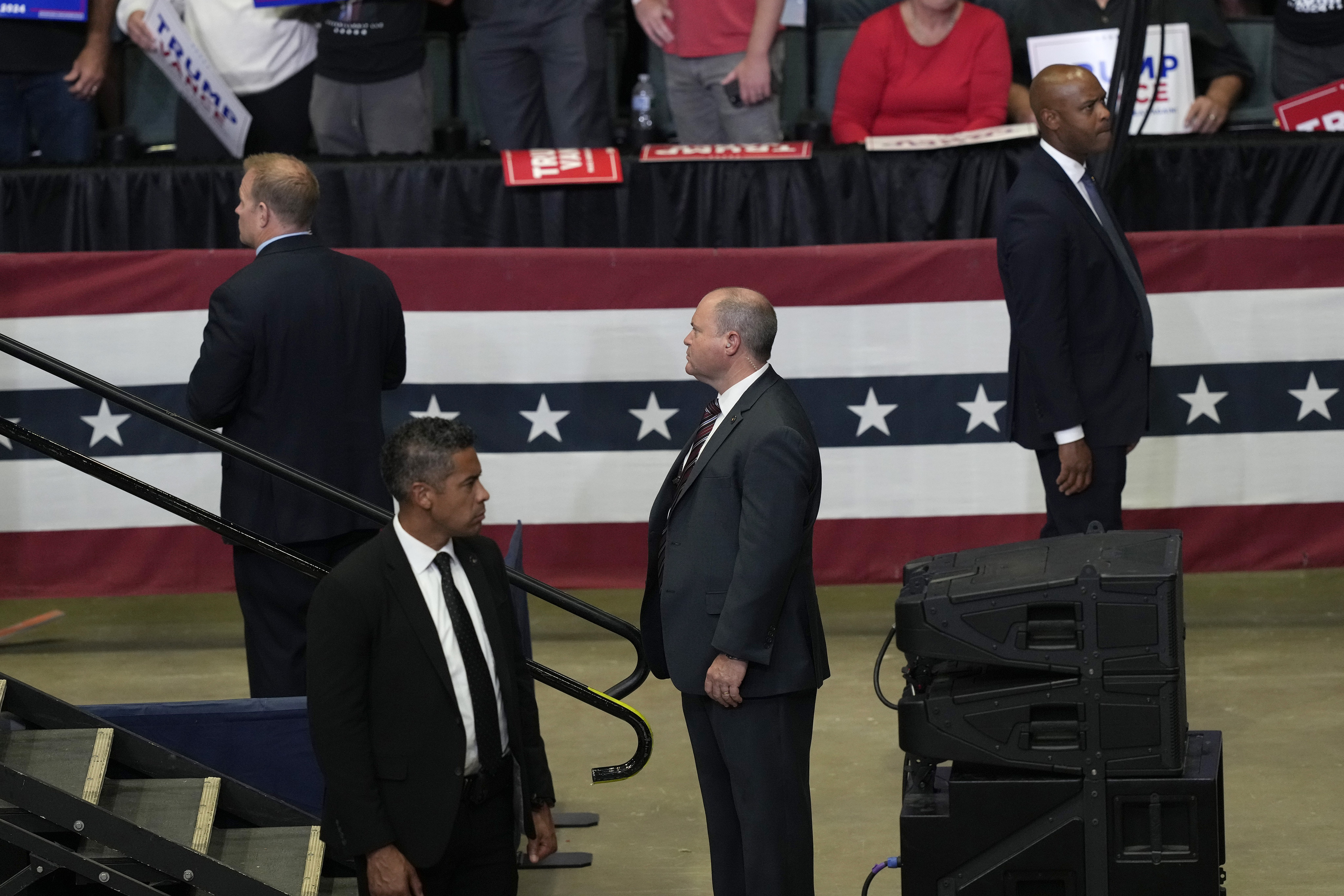
President Donald Trump is making grandiose claims about slashing drug prices and the efficacy of a treatment for COVID-19 that don’t hold up to reality.
In a tweet Sunday, he asserts that he will reduce drug prices by at least 50%. That’s highly unlikely. Measures announced last month by the president will take time to roll out and their effects are uncertain. They also have been less ambitious than a plan by Speaker Nancy Pelosi that passed the House.
Meanwhile, Trump once again asserted that hydroxychloroquine is a drug safe and effective for treating COVID-19, only to be firmly rebutted Sunday by his own testing coordinator, who said people should “move on” to more effective measures, such as social distancing and wearing masks.
A look at Trump’s statements on health care:
PRESCRIPTION DRUGS
TRUMP: “When you see the Drug Companies taking massive television ads against me, forget what they say (which is false), YOU KNOW THAT DRUG PRICES ARE COMING DOWN, BIG.” — tweet Sunday.
TRUMP: “We think we’re going to cut prescription drug prices 50, 60, even 70%.” — remarks Thursday to New Hampshire supporters.
TRUMP, promising a big reduction in drug prices: “No other President would be able to produce what I have.” — tweet Tuesday.
The Trump Administration
The latest news on Donald Trump's presidency
Get a weekly recap of the latest San Francisco Bay Area housing news. Sign up for NBC Bay Area’s Housing Deconstructed newsletter.
THE FACTS: Actually, no massive, across-the-board cuts are in the offing for drug prices.
Efforts announced last month by the president — such as allowing importation of medicines from countries where prices are lower — take time to roll out. It remains to be seen how much they’ll move the needle on prices.
Drug importation, for example, requires regulatory actions to be taken and supply chains to be established, a tall order when the election is just three months away.
Trump has taken actions to reduce patient costs for some drugs, such as insulin, but the steps have been less ambitious than those in a bill from Speaker Nancy Pelosi that the House passed last year. Her proposal would authorize Medicare to negotiate prices for expensive medications and use savings from lower drug costs to establish Medicare coverage for dental care, hearing and vision.
She would cap Medicare recipients’ out-of-pocket costs for medicines at $2,000 a year. No limit exists on those annual costs now. The vast majority of Medicare recipients have low drug costs, but the Kaiser Family Foundation estimated that in 2017, about 1 million Medicare recipients paid much more, averaging $3,200 in a year.
White House actions, while not insignificant, don’t amount to the massive changes Trump brags about. One major initiative would give people on Medicare the option of limiting their out-of-pocket costs for insulin to $35 a month starting next year, by picking an “enhanced” prescription drug plan for a slightly higher premium.
___
VIRUS DRUG
TRUMP, on the use of hydroxychloroquine to treat or try to prevent the coronavirus: “I happen to be a believer in hydroxy. I used it. I had no problem. I happen to be a believer.” — remarks Wednesday to reporters.
THE FACTS: Trump's continued promotion of the anti-malaria drug for COVID-19 has been repeatedly dismissed by his own health experts, including Adm. Brett Giroir, the administration's lead official on testing, who made clear Sunday he does not recommend the treatment.
“Most physicians and prescribers are evidence-based, and they’re not influenced by whatever is on Twitter or anything else," he told NBC’s “Meet the Press.” In this case, “anything else” includes endorsements of the drug by the president.
Giroir said "the evidence just doesn't show hydroxychloroquine is effective right now."
He said people need to “move on” and “talk about what is effective.” He pointed to measures such as hand-washing, social-distancing and wearing masks, as well as treatments such as remdesivir and steroids.
Trump’s own health agencies as well as Dr. Anthony Fauci, the government's top infectious diseases expert, have cautioned that taking hydroxychloroquine to stave off the virus could be dangerous due to side effects. If the president is to be believed, he took the drug himself.
Trump repeatedly has pushed hydroxychloroquine, with or without the antibiotic azithromycin. But no large, rigorous studies have found them safe or effective for COVID-19, and they can cause heart rhythm problems and other serious side effects. The Food and Drug Administration has warned against the drug combination and said hydroxychloroquine should only be used for the coronavirus in hospitals and research settings.
___
TRUMP, on hydroxychloroquine: “Many, many people agree with me. A great test just came out from the Ford clinic in Michigan — very respected.” — remarks Wednesday to reporters.
THE FACTS: Trump is cherry picking a study widely criticized as flawed, ignoring multiple studies finding hydroxychloroquine doesn’t help.
Numerous rigorous tests of hydroxychloroquine, including a large one from Britain and one led by the National Institutes of Health, concluded that the anti-malaria drug was ineffective for treating hospitalized coronavirus patients.
The Henry Ford Health System study that Trump refers to was an observational look back at how various patients fared. It was not a rigorous test where similar patients are randomly assigned to get the drug or not and where each group is compared later on how they did.
In the study, some people with heart or certain other conditions were not given the drugs, which can cause heart rhythm problems, so those patients were fundamentally different from the group they were compared with. Researchers said they adjusted statistically for some differences, but the many variables make it tough to reach firm conclusions.
Some patients also received other treatments such as steroids and the antiviral drug remdesivir, further clouding any ability to tell whether hydroxychloroquine helped.



